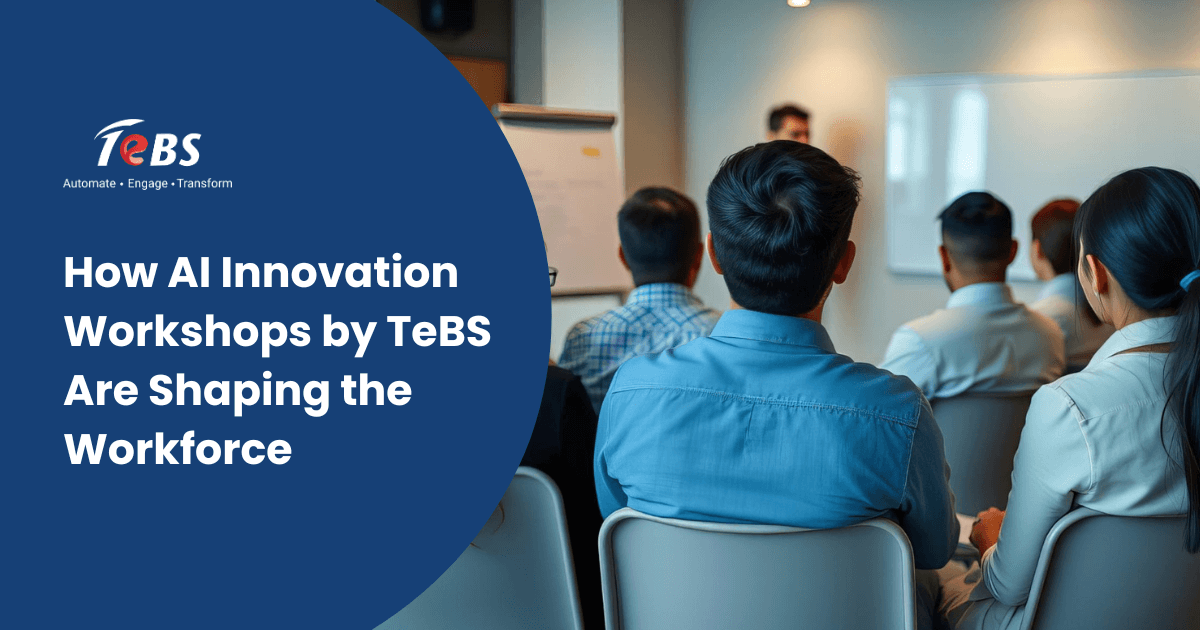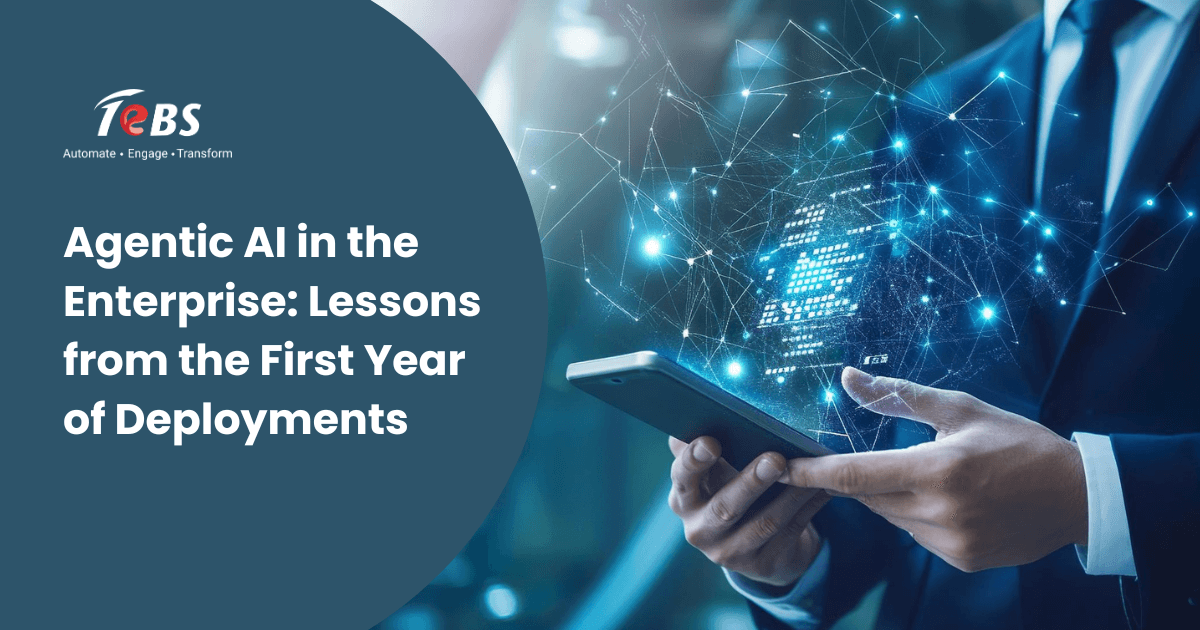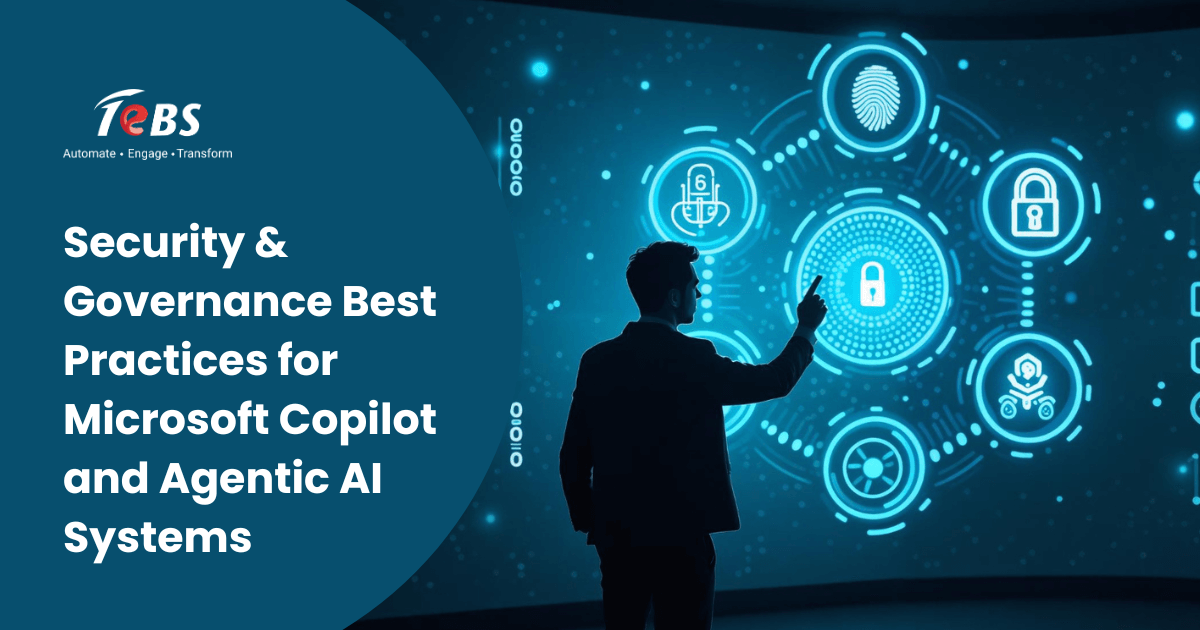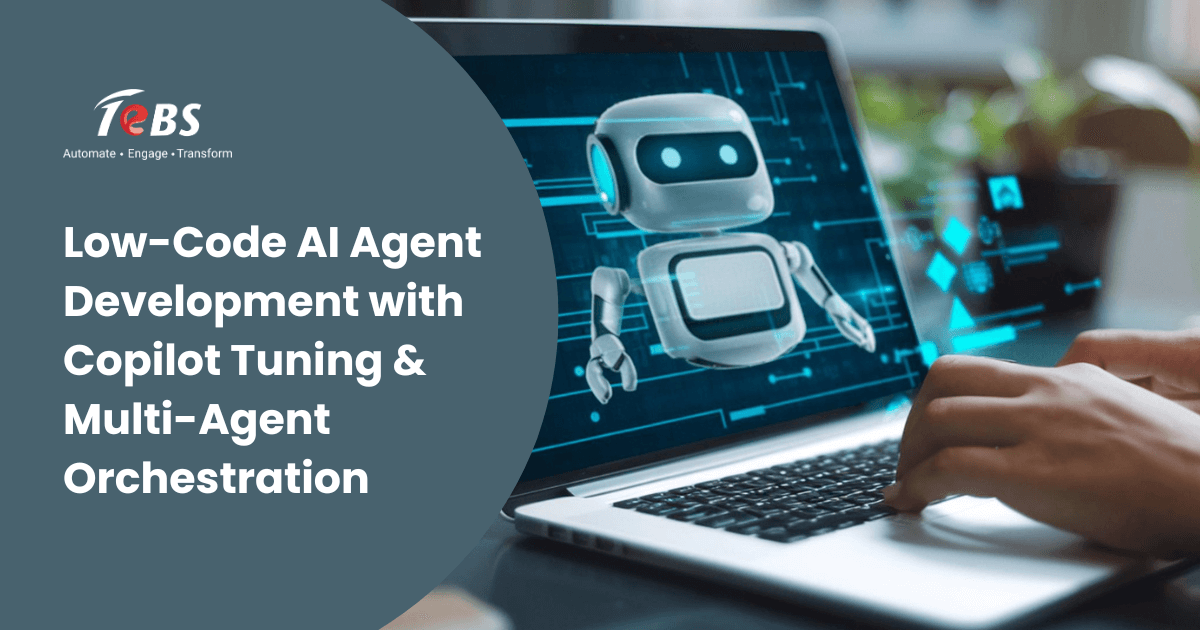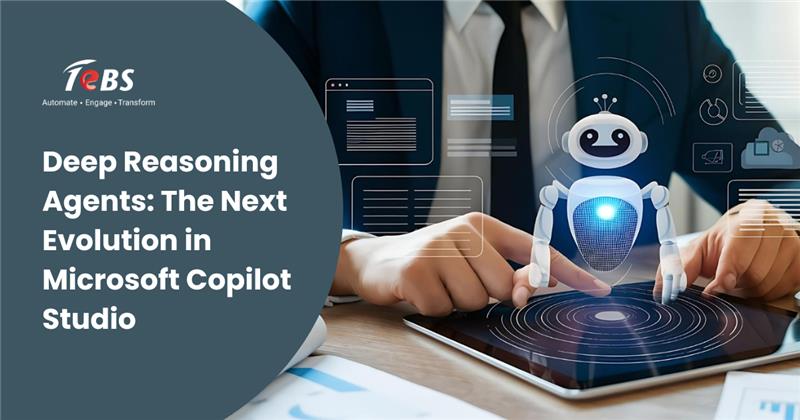Artificial Intelligence has become one of the most transformative forces in the modern business landscape. From automating repetitive processes to enabling predictive analytics and enhancing decision-making, AI is no longer an emerging trend—it is an essential component of today’s workforce strategy. Organizations across industries are increasingly adopting AI to improve efficiency, deliver better customer experiences, and gain a competitive edge in their respective markets.
However, the rapid pace of AI adoption has created a growing need for skilled professionals who can understand, apply, and innovate with AI technologies. This is where AI innovation workshops play a vital role. These workshops are designed to empower professionals with the knowledge, tools, and hands-on experience required to leverage AI effectively in their daily work.
Total eBiz Solutions (TeBS) has been at the forefront of this movement through its AI consultation Service and its AI Innovation Workshops, which are specifically designed to upskill professionals, bridge the AI knowledge gap, and prepare the workforce for a future where AI capabilities are integral to success.
The Need for AI in the Modern Workforce
AI is no longer confined to research labs or high-tech companies—it has permeated every industry, from healthcare and finance to manufacturing, retail, and public services. The integration of AI into business processes has significantly transformed the way work is performed.
In manufacturing, AI-powered predictive maintenance reduces downtime and improves operational efficiency. In healthcare, AI-driven diagnostic tools assist doctors in making faster and more accurate decisions. In retail, AI enables personalized shopping experiences by analyzing customer preferences and behavior. Even in government services, AI helps in streamlining citizen engagement and improving service delivery.
This widespread adoption means that organizations are actively seeking professionals with AI skills. The demand for data scientists, AI engineers, and AI-enabled business analysts is rising sharply. Beyond technical roles, professionals in marketing, operations, customer service, and project management are also expected to have a foundational understanding of AI and its applications.
However, there is a significant skills gap. Many professionals may have strong domain expertise but lack exposure to AI tools and methods. Without proper training, they may struggle to adapt to AI-driven workflows or to identify opportunities where AI can create value.
This is why AI upskilling has become a priority for both individuals and organizations. AI innovation workshops are one of the most effective ways to address this need, as they provide structured learning, practical experience, and a direct link between theory and workplace application.
According to Gartner, 82% of CIOs report that AI-related skills gaps negatively impact their ability to execute objectives, making upskilling and reskilling employees critical to closing the gap.
TeBS AI Innovation Workshops: Bridging the Skills Gap
TeBS recognizes that the most effective AI training goes beyond theoretical learning. The AI Innovation Workshops offered by TeBS are tailored to meet the real-world demands of professionals across different industries. They are designed not only to teach the fundamentals of AI but also to help participants develop problem-solving capabilities using AI-driven approaches.
Objectives of TeBS AI Innovation Workshops
- Equip Professionals with AI Knowledge – Provide participants with a strong foundation in AI concepts, tools, and techniques relevant to their industry.
- Enable Hands-On Learning – Ensure participants gain practical experience through guided exercises, simulations, and real-world scenarios.
- Foster Innovation Mindsets – Encourage participants to think creatively and explore how AI can solve existing business challenges and create new opportunities.
- Bridge the Skills Gap – Address the mismatch between AI job market requirements and the current capabilities of the workforce.
- Accelerate AI Adoption – Help organizations integrate AI into their strategies and workflows through trained and confident employees.
Key Features of TeBS AI Innovation Workshops
1. Hands-On Training
The workshops emphasize experiential learning. Participants work with AI tools, data sets, and algorithms, allowing them to build solutions in real-time. This approach ensures that learning is not limited to theory but is reinforced through practice.
2. Real-World Applications
Each workshop is built around industry-relevant scenarios. Whether it is automating customer support through AI chatbots, creating predictive models for demand forecasting, or enhancing AI business process automation with AI, participants learn how to implement AI in contexts directly applicable to their work.
3. Customizable Learning Paths
TeBS understands that AI adoption varies across industries and organizational maturity levels. Workshops can be tailored to suit specific industry needs or organizational goals, ensuring maximum relevance for participants.
4. Collaborative Learning Environment
The workshops encourage team-based problem-solving. This fosters collaboration, knowledge sharing, and cross-functional understanding—skills that are critical in driving AI adoption within organizations.
5. Expert Guidance
Participants benefit from the expertise of AI practitioners who bring both technical knowledge and practical industry experience. This mentorship ensures that participants are guided effectively through complex concepts and real-world challenges.
Real-World Impact on the Workforce
TeBS AI Innovation Workshops have delivered tangible benefits to individuals and organizations, helping them unlock new levels of productivity and innovation.
Career Advancement for Professionals
Many participants have reported significant career growth after completing the workshops. For instance, a marketing professional who attended a workshop on AI-driven analytics was able to implement advanced customer segmentation techniques, leading to a measurable improvement in campaign performance. This achievement not only benefited the organization but also positioned the participant as an AI-savvy leader within their team.
Similarly, a supply chain manager who underwent training in predictive analytics was able to optimize inventory levels and reduce operational costs. The ability to make data-driven decisions using AI tools elevated their strategic role within the company and opened up new career opportunities.
Organizational Transformation
Organizations that have sent teams to TeBS AI Innovation Workshops have experienced measurable improvements in efficiency, decision-making, and innovation. For example, a mid-sized retail company integrated AI-powered demand forecasting into their operations after their planning team attended the workshop. This enabled the company to align stock levels more closely with customer demand, reducing waste and improving profitability.
Organizations like SUSS have leveraged AI solutions taught in TeBS workshops to enhance operational efficiency, as seen in our case study on SUSS boosting efficiency with a Co-Pilot-powered chatbot .
In another case, a public sector agency leveraged AI-based document management solutions learned during the workshop to automate administrative workflows. This resulted in faster service delivery, improved compliance, and reduced manual workload for employees.
Testimonials from Participants
Participants consistently highlight the practical, results-oriented approach of the workshops. Feedback often emphasizes how the training is immediately applicable in the workplace, making the learning process highly valuable.
Some have credited the workshops with helping them secure promotions or transition into AI-related roles. Others have shared how the collaborative, hands-on learning environment made complex AI concepts more approachable and less intimidating.
Conclusion
The future of work is undeniably intertwined with the capabilities of Artificial Intelligence. Organizations that embrace AI and equip their workforce with the necessary skills will not only remain competitive but will also thrive in the evolving digital economy. For professionals, acquiring AI skills is no longer optional—it is an essential step toward career growth and long-term relevance in the job market.
TeBS AI Innovation Workshops provide a structured, hands-on, and industry-relevant approach to AI learning that empowers professionals and organizations alike. By bridging the skills gap and fostering a culture of innovation, TeBS is helping shape a workforce that is ready to lead in the AI-driven future through AI Development service and Innovative Integration
If you are looking to empower your team or enhance your own AI capabilities, TeBS can help you take that crucial step forward. To learn more about our AI Innovation Workshops or to discuss how we can tailor them to your needs, contact us at [email protected] and begin your journey toward AI readiness today.
Frequently asked questions
Q1: What are AI Innovation Workshops by TeBS?
They are structured, hands-on training programs designed to upskill professionals with AI knowledge, practical tools, and real-world applications to drive business innovation.
Q2: Why are AI skills important for the modern workforce?
AI skills enable professionals to adapt to digital transformation, automate processes, analyze data effectively, and remain competitive in a rapidly evolving job market.
Q3: How do TeBS AI Innovation Workshops bridge the AI skills gap?
The workshops combine theory with hands-on exercises, industry-relevant case studies, and guided mentorship to close the gap between current workforce skills and AI job market demands.
Q4: What hands-on training is included in the workshops?
Participants work directly with AI tools, datasets, and algorithms, solving real-world problems such as predictive analytics, chatbot development, and AI-powered automation.
Q5: Can workshops be customized for different industries?
Yes, TeBS tailors workshops to specific industry needs—whether it’s healthcare, finance, retail, manufacturing, or public services—ensuring maximum relevance.

